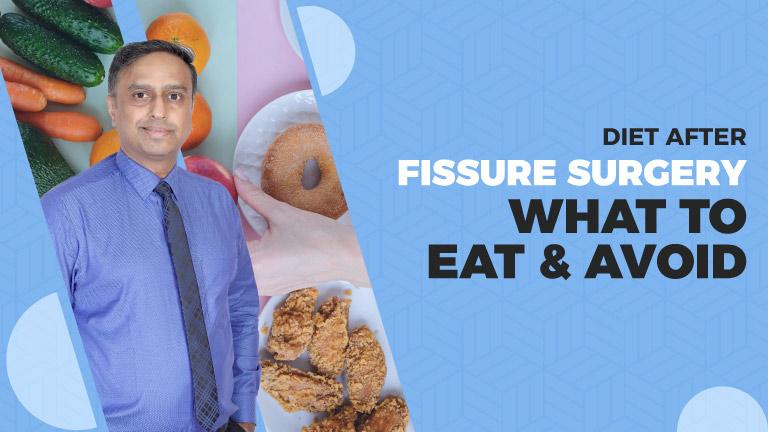Undergoing fissure surgery can be a challenging experience, and post-operative care is crucial for a smooth recovery. One essential aspect of recovery is maintaining a suitable diet that supports healing while minimizing discomfort. This blog post will guide you through a well-balanced diet plan after fissure surgery, outlining foods what to eat and what not to eat, and a sample diet plan list suggested by expert dieticians to ensure a quicker recovery and optimal healing.
The Importance of a Diet Plan After Fissure Surgery
After fissure surgery, your body requires the right nutrients to promote tissue repair, prevent constipation, and minimize irritation in the anal area. A well-planned diet can play a significant role in reducing pain, inflammation, and the risk of complications, helping you return to your regular activities as soon as possible. So let’s check out the list of food to add and minimise from your diet after fissure surgery;
Foods to Eat After Fissure Surgery
High-Fiber Foods: Fiber is your best friend during recovery. It softens the stool, making it easier to pass without causing strain. Opt for whole grains like oats, brown rice, whole wheat bread, and quinoa. Incorporate fruits like apples, pears, berries, and prunes, as well as vegetables like broccoli, spinach, and carrots.
Lean Proteins: Include lean protein sources like skinless poultry, fish, and eggs, and plant-based proteins like beans and lentils. They are crucial for tissue repair.
Healthy Fats: Good fats, such as those found in avocados, nuts, seeds, and olive oil, support the body’s healing process and provide essential nutrients.
Probiotic-Rich Foods: Yogurt, and other fermented foods contain beneficial bacteria that promote gut health and aid digestion.
Fluids: Staying hydrated is crucial. Drink plenty of water throughout the day to prevent constipation and support overall healing.
Foods to Avoid After Fissure Surgery
Spicy Foods: Spices can irritate the anal area, potentially causing discomfort and delaying healing.
Processed Foods: Highly processed foods can contribute to constipation as they contain unhealthy fats and refined sugars.
Caffeine and Carbonated Drinks: Coffee, tea, and carbonated beverages can be dehydrating and may worsen constipation.
Dairy Products: While some dairy products like yogurt can be beneficial, high-fat dairy can be constipating for some individuals. Moderation is key.
Hard-to-Digest Foods: Foods that are difficult to digest, such as red meat and fried foods, can lead to harder stools and increased discomfort.
Tips for a Comfortable Recovery
- Eat Small, Frequent Meals
- Chew Thoroughly
- Slowly Increase Fiber Intake
- Stay Hydrated
- Listen to Your Body
A Sample Diet Plan to Follow Post-Fissure Removal Surgery
Breakfast:
- Oatmeal: Cooked oats with mashed banana and a tablespoon of ground flaxseeds for added fiber and moisture.
- Scrambled Eggs: Soft-cooked scrambled eggs for a protein source.
- Toast: Whole-grain toast with a small amount of butter or a mild spread.
Morning Snack: Plain, low-fat yogurt with some honey or fruit puree for taste.
Lunch:
- Chicken Soup: Homemade chicken or vegetable broth-based soup with well-cooked chicken, soft vegetables, and noodles.
- Steamed Vegetables: Gentle, steamed and well-cooked vegetables like carrots, cucumber, or spinach.
- Rice: Well-cooked white rice for easily digestible carbohydrates.
Afternoon Snack: Unsweetened applesauce for a light and easily digestible snack.
Dinner:
- Mashed Potatoes:
- Creamy, skinless mashed potatoes for a mild and easily digestible starch.
- Poached Fish: Tender, poached fish like tilapia or cod for a protein source.
- Cooked Spinach: Soft-cooked spinach or another well-cooked leafy green.
Evening Snack: A ripe banana for a light and soothing snack.
Hydration: Stay well-hydrated throughout the day by sipping water. Proper hydration aids in healing and prevents constipation.






